
By Thomas Waal for Foreign Policy (submitted)

[ Editor’s Note: This is an example of the editorializing I have been doing on how until people are not motivated enough to hit the streets, and stay there, they are giving up most of their power to change anything.
So far, we do not see any foreign intervention secret hands in this Armenian turnover. On the contrary, “they” would have been fine with the status quo there. We will be watching carefully for any hidden influence.
For now we will wait to see how the new government evolves and what the young street protesters response will be. Armenia is one of those countries with an educated, talented people base with a standard of living way below what they merit.
The West has historically drained talent from such countries by making sure competitive business structures do not evolve to undercut the in place virtual foreign monopolies. Western business is still in a colonial mindset of control and domination, economically from afar, from places like the City of London, which should be renamed “Pirates Cove”, if Israel does not get it first.
So VT salutes the efforts of the Armenian people to make the changes they feel needed to improve their lives without a coup, bombings, or terror campaigns …Jim W. Dean ]
 Jim's Editor’s Notes are solely crowdfunded via PayPal
Jim's Editor’s Notes are solely crowdfunded via PayPal
Jim's work includes research, field trips, Heritage TV Legacy archiving & more. Thanks for helping. Click to donate >>

– First published … April 24, 2018 –
When a leader is deposed by street protests in any Russia-allied post-Soviet country, analysts from Washington to Moscow jump to geopolitical conclusions faster than you can say “George Soros.” But sometimes, as in Armenia these past several days, government-toppling protests are just government-toppling protests.
On April 23, resigned as Armenia’s prime minister under pressure from mass civil unrest, led mainly by young people, in the capital, Yerevan. The streets of the city turned into an exhilarating carnival of people power that surprised most Armenians.
But we should not expect this to have geopolitical repercussions beyond Armenia’s borders, nor should we see it as a signal of Russian decline or as a prompt for potential Russian intervention. Sargsyan’s downfall is not about geopolitics. At most, it is a sign that post-Soviet regimes are not as secure as they look from a distance and that the region’s old regimes are perfectly capable of crumbling peacefully without any push from the outside.
Armenia is a difficult country to characterize. It does not fit into a neat international category. It is small, with only 3 million people, but its far-flung diaspora, from Boston to Beirut, keeps it on the map. It’s an ally of Russia but with a strong connection to California and the U.S Congress through its diaspora. Despite being overwhelmingly Christian, it has a good relationship with the Islamic Republic of Iran.
Armenia’s people are poor but highly educated, and its current political system is neither authoritarian nor democratic. Since 1999, one party, the Republican Party of Armenia, has dominated, and two men, once close friends — Sargsyan and Robert Kocharian — have served as president. In April, Sargsyan’s second and final term as president ended, leaving this ruling group with a quandary about how to perpetuate its time in power.
The business-political elite that run the country wanted continuity and Sargsyan to stay as leader, this time as prime minister under a changed constitution in which the role of president would be downgraded and the head of government became the de facto leader of the country. In 2014, Sargsyan said he would not take the prime ministerial job. This month, he took it all the same — either because he was dissembling and wanted power for himself in perpetuity or because the ruling elite needed him to.
We may never know his real motivation because on April 23 Sargsyan resigned as prime minister, less than a week after taking the job and in the face of mass street protests. This was all unexpected, even to the protestors themselves. They do not have any formal organization and barely any representation in parliament. Their de facto leader, Nikol Pashinian, is a former newspaper editor who does not lack courage or ideas but who is mostly untested in high politics.
This was a rejection of Sargsyan for sure. But it is worth pointing out that, within the limits of the one-party system he sat atop of until recently, Sargsyan had done a fairly good job in recent times. He made some good appointments and diversified Armenia’s foreign policy away from complete reliance on Russia. His prime minister, Karen Karapetyan — who had the job a couple of weeks ago and looks set to get it back — delivered 7 percent economic growth and greater investment. A new Comprehensive and Enhanced Partnership Agreement was signed between Armenia and the European Union last year to balance its membership of Vladimir Putin’s Russian-led Eurasian Economic Union.
We shouldn’t look at the events in Armenia, then, through a geopolitical prism. They are decidedly not a rejection of Russia. Armenia looks out at two closed borders, with Azerbaijan and Turkey — a result of an ongoing 30-year-old conflict over the territory of Nagorno-Karabakh. The country’s military alliance with Russia stems from that and is deemed essential to national security. (The new opposition wants to lessen Russia’s economic hold over the economy, but that is a different matter.)
Nor does Pashinian, the de facto opposition leader, dissent from the consensus line of the political establishment, which is opposed to making concessions over Karabakh, which Armenians fought over with Azerbaijan and have held since 1994.
The events of April 23 are about more than one man. They are the result of a system that has formed over 20 years in which business and politics have fused, in which many criminal types and veterans of the Karabakh conflict seized lucrative sectors of the economy and have not surrendered them. Over that period, emigration has become a safety valve, bleeding the country of some of its brightest talents, who could not find proper employment in this system.
In this respect, Armenia is no different from other post-Soviet countries, such as Russia, Belarus, and Azerbaijan. The Achilles’s heel of this regime — that it chose not to crush the protests by force — was also to its credit. Sargsyan came to power a decade ago in controversial circumstances in which opposition protests in March 2008 were suppressed and 10 people died. He evidently did not want to pick an even bigger fight this time.
It was said of England’s deposed King Charles I in 1649, recalling William Shakespeare’s Macbeth, that “nothing in his life became him like the leaving it.” If Sargsyan can continue to negotiate a transition in which he quits the stage and Armenia’s oligarchic system is dismantled, he will earn a similar political epitaph.
But some hard bargaining begins now between an entrenched political system and an exuberant but disorganized public movement. Democrats and authoritarians in the wider region will be taking bets on the outcome and willing one side or the other to prevail. Russia will be watching this process a bit nervously while doubtlessly sending quiet messages to remind the next Armenian government that its only true friend is still in Moscow.
*
Narek Aleksanyan
It took nearly two weeks of continuous peaceful civil disobedience before Serzh Sargsyan called it quits and resigned as prime minister on April 23.
Judging by the jubilation on the faces of the thousands who gathered in Republic Square to celebrate the end of Sargsyan’s ten-year rule, those two weeks of rallies, marches, school boycotts, police brutality and intimidation were well worth the cost.
In the days and weeks ahead, a new government will have to be formed and the emotions of the people redirected to the task of building the foundations of a new Armenia.
But for now, it’s party time.
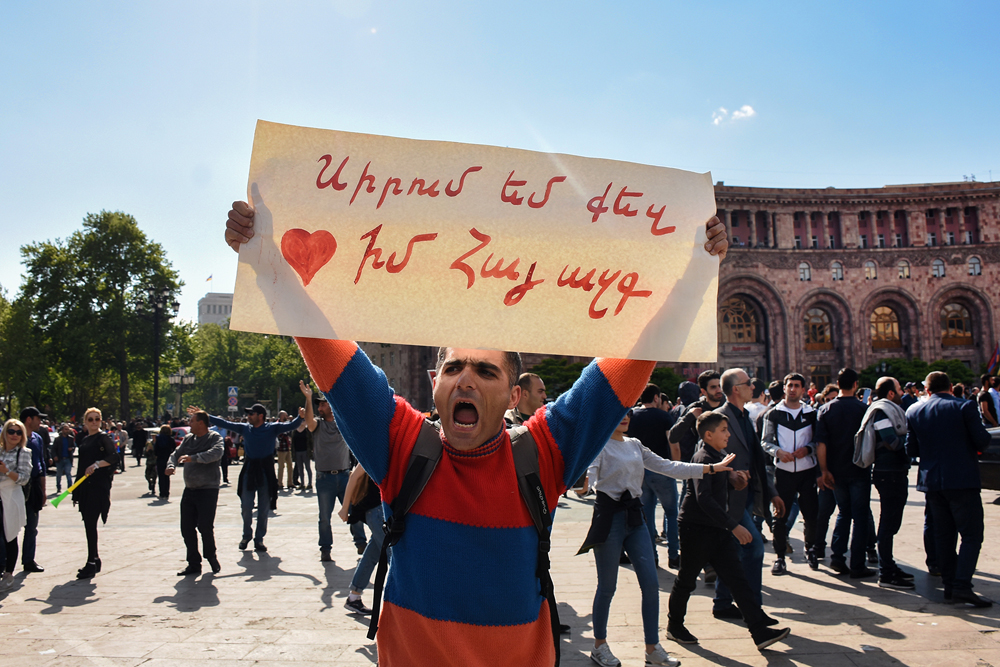
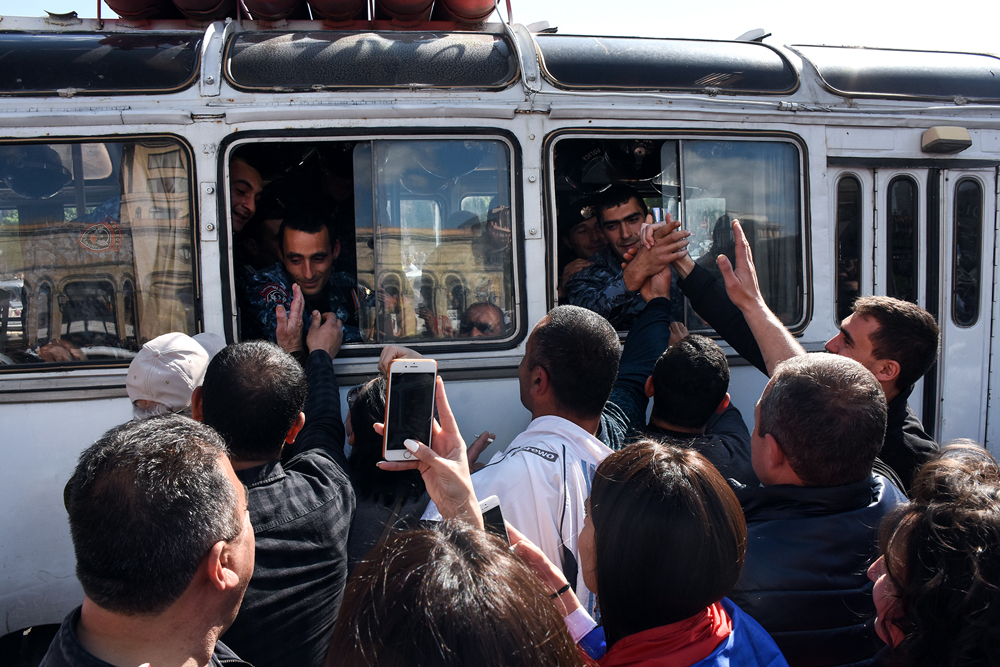
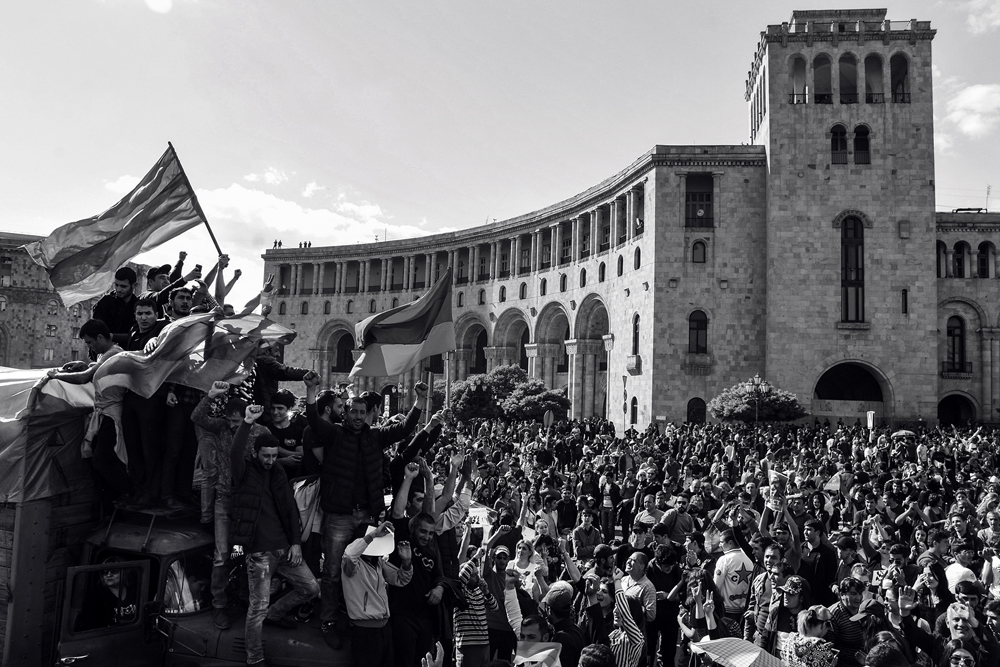
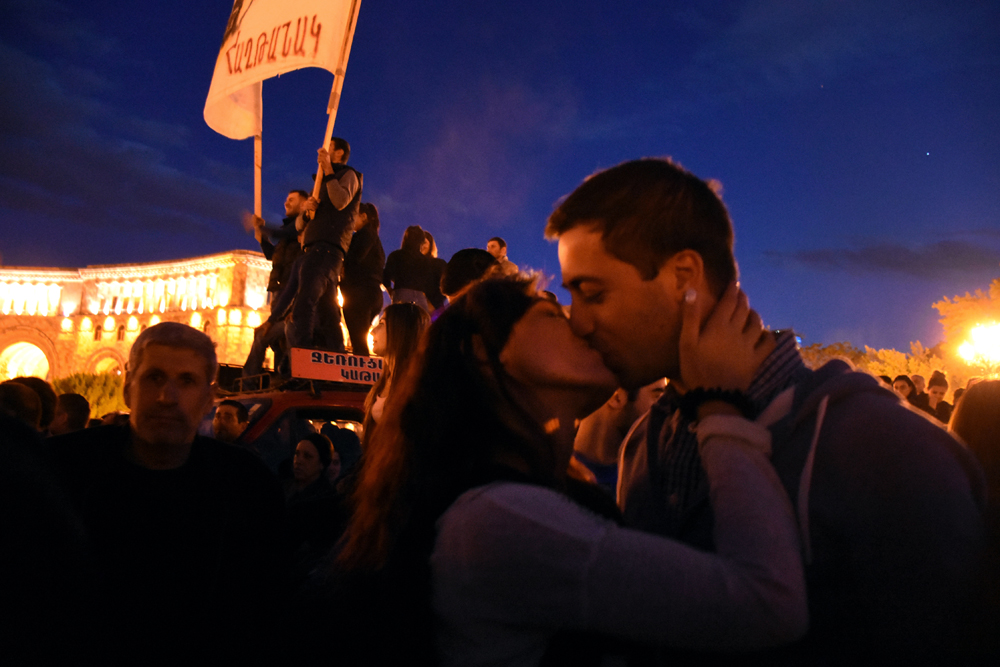
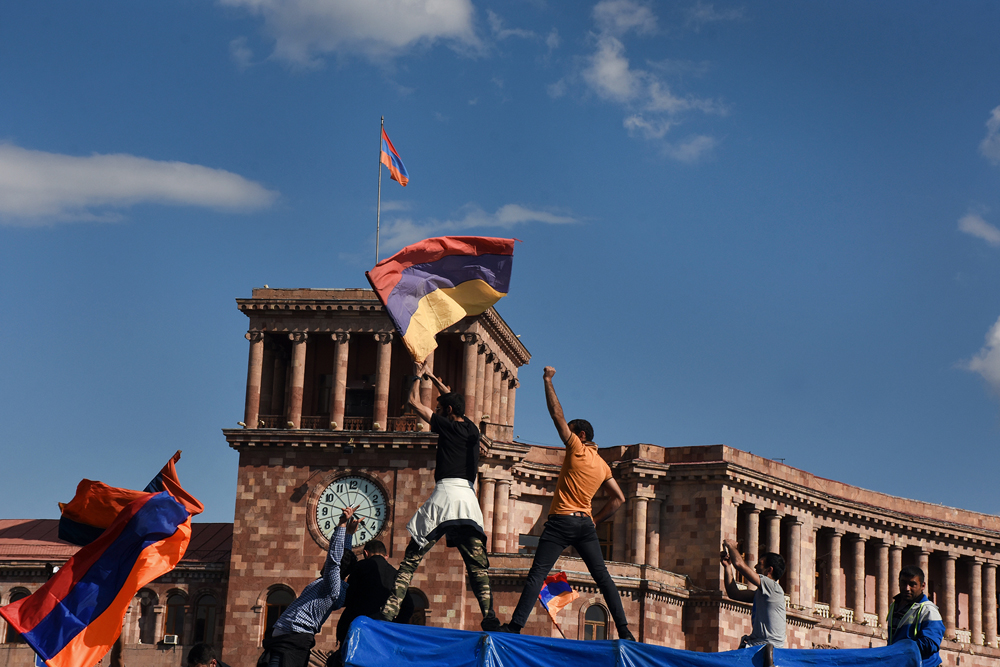
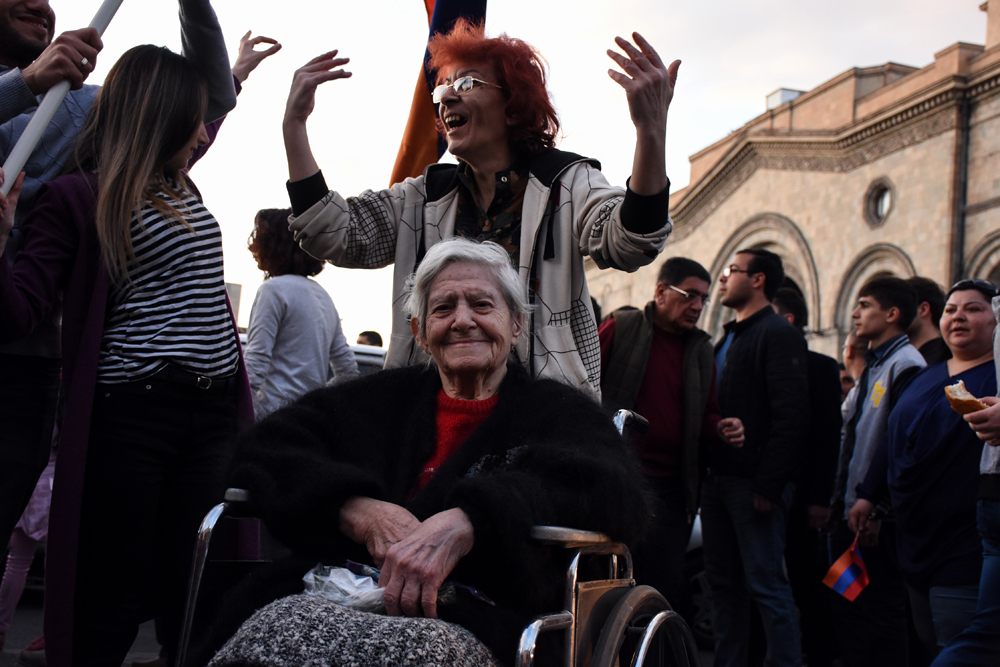
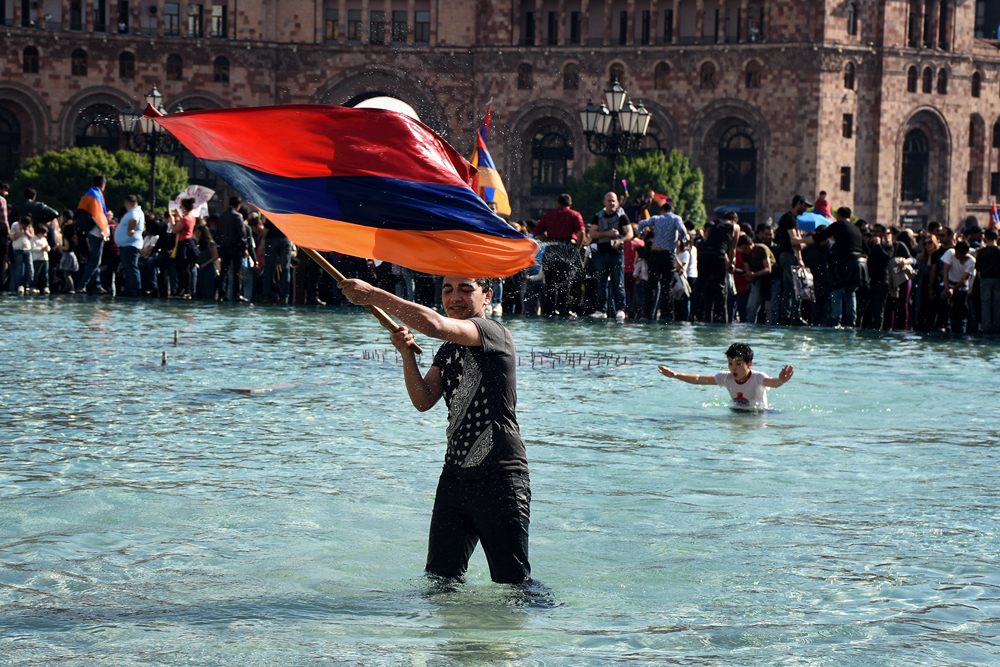
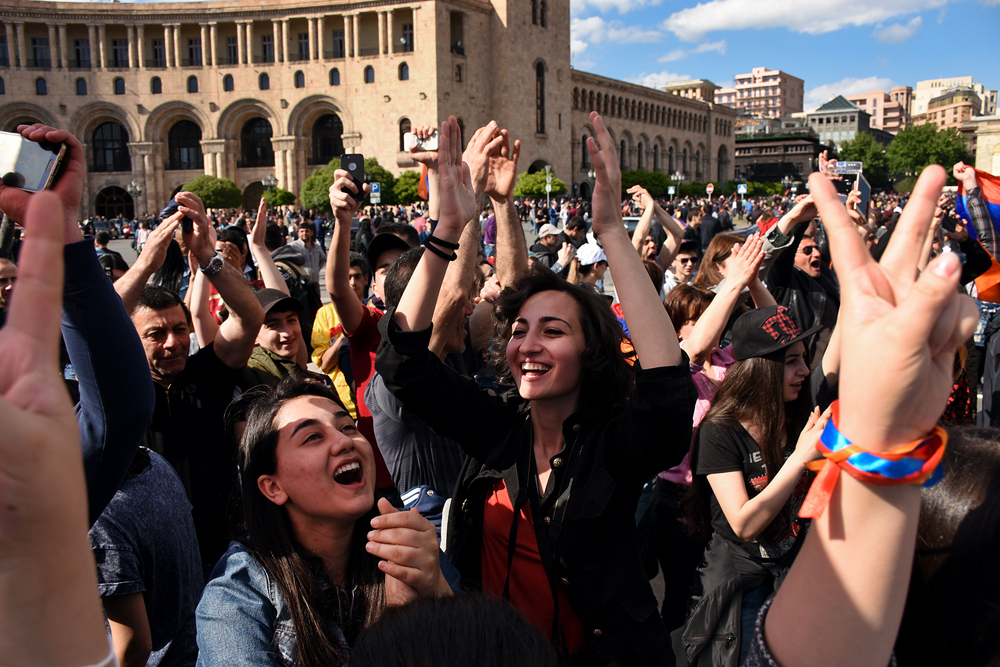
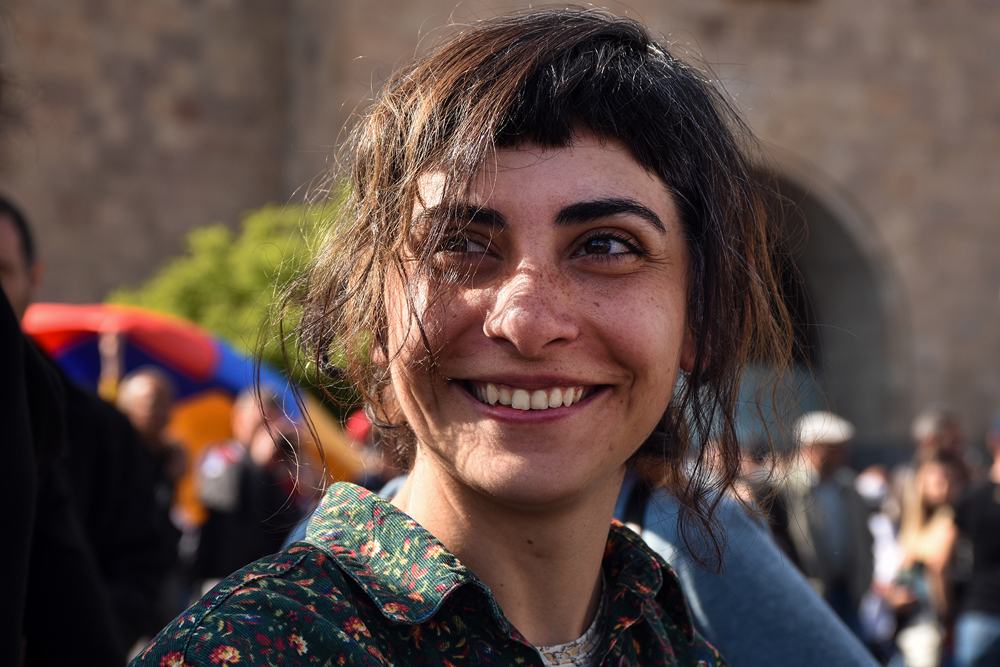
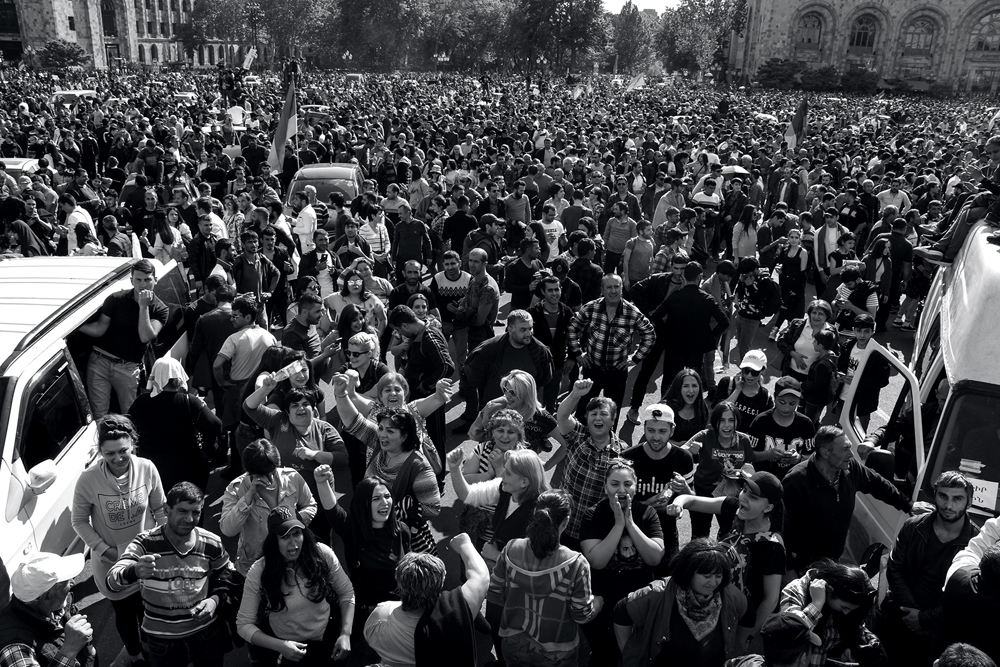

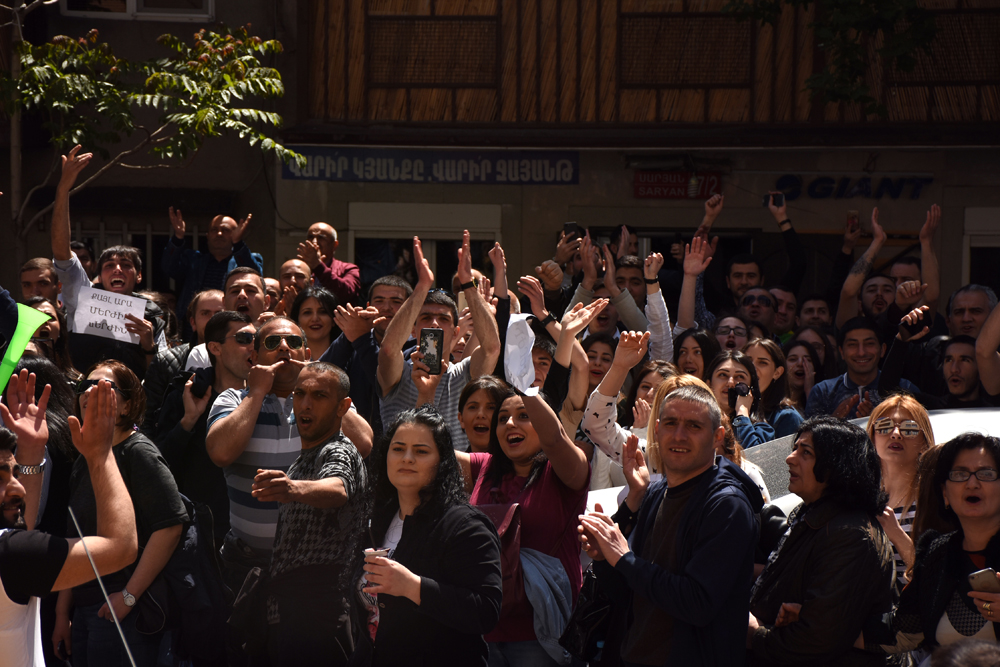
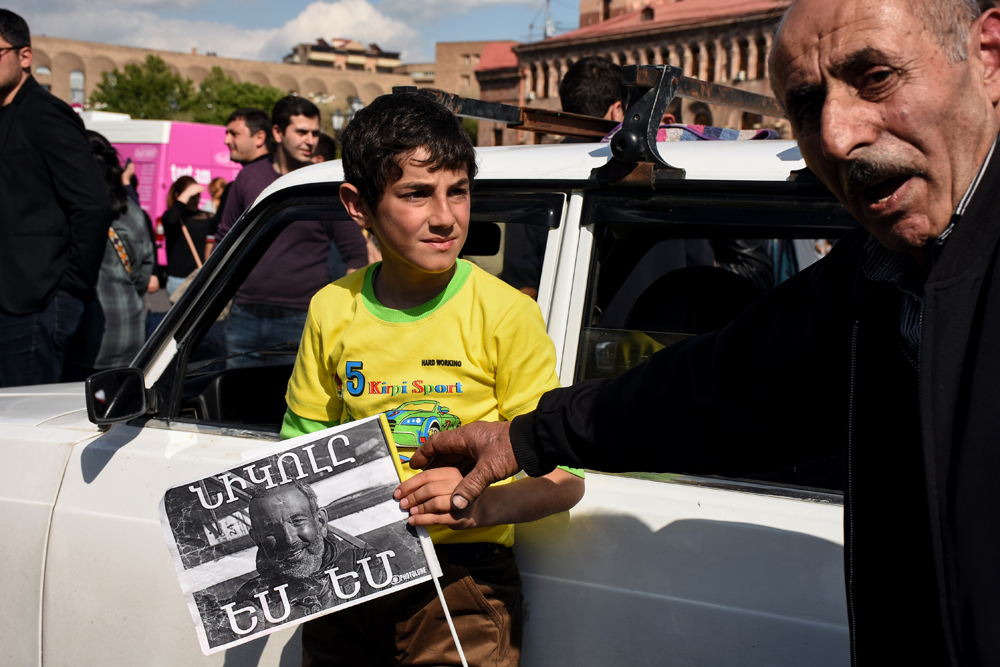
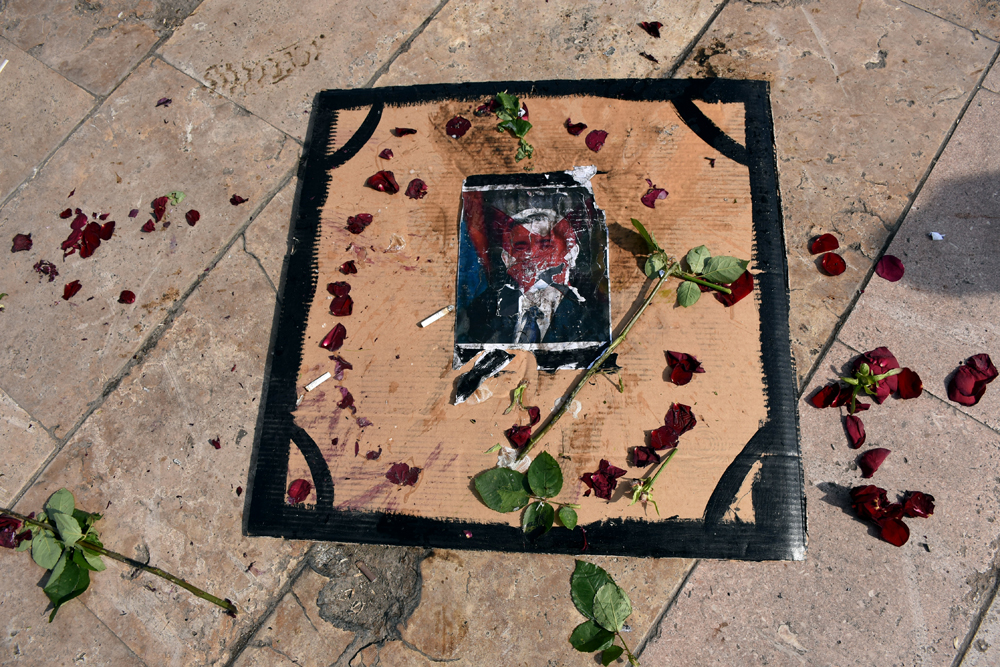
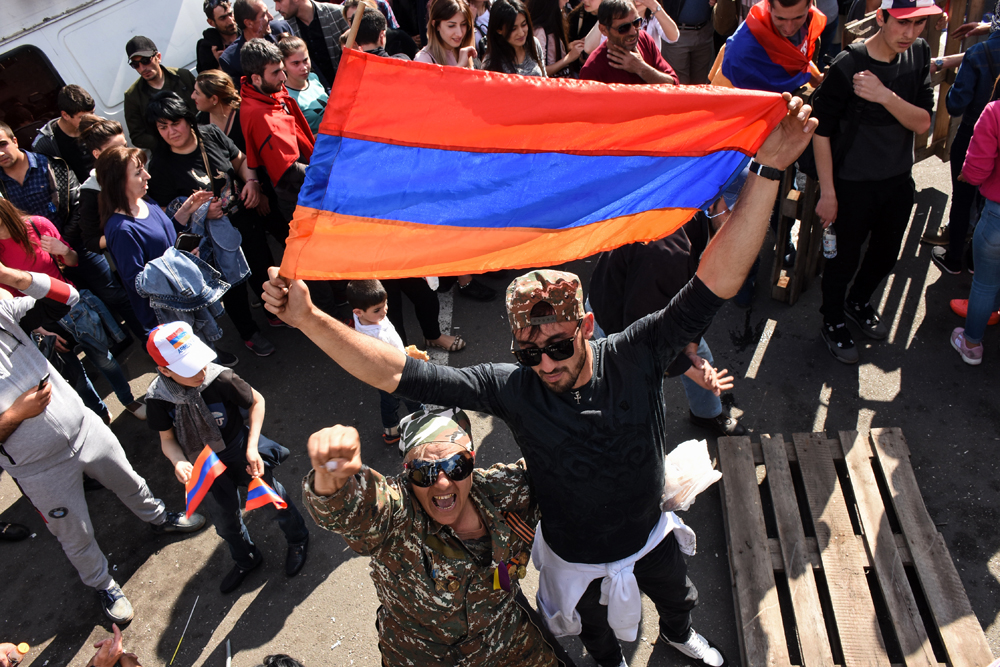
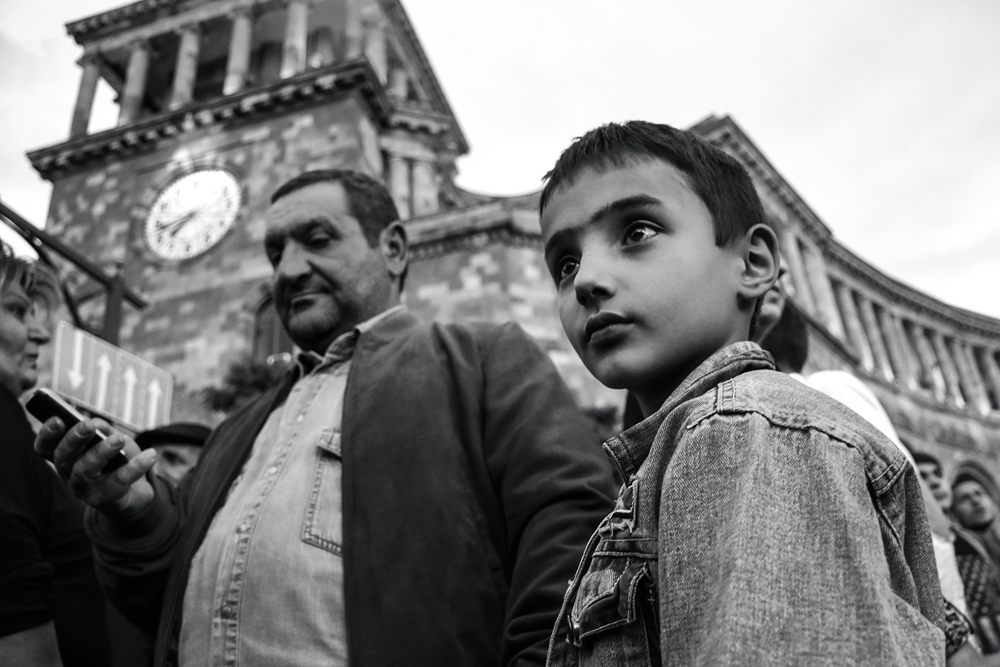
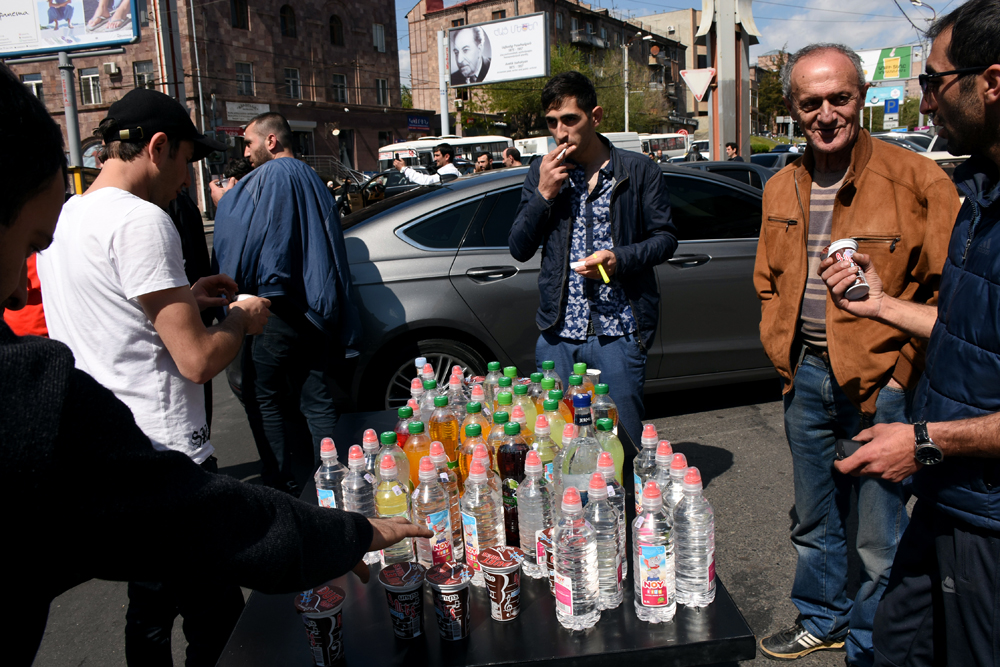
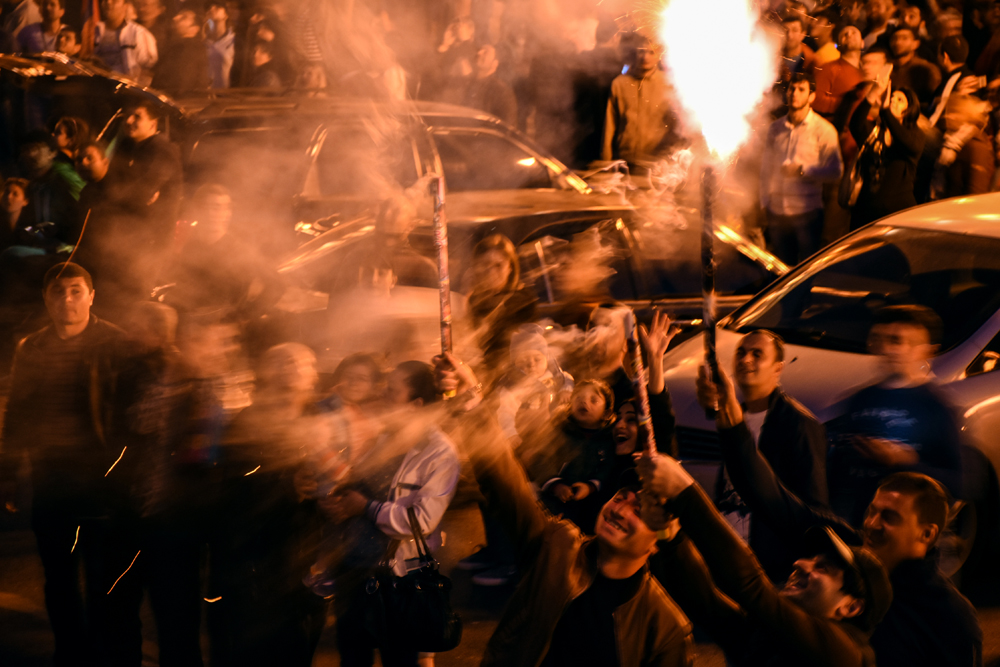
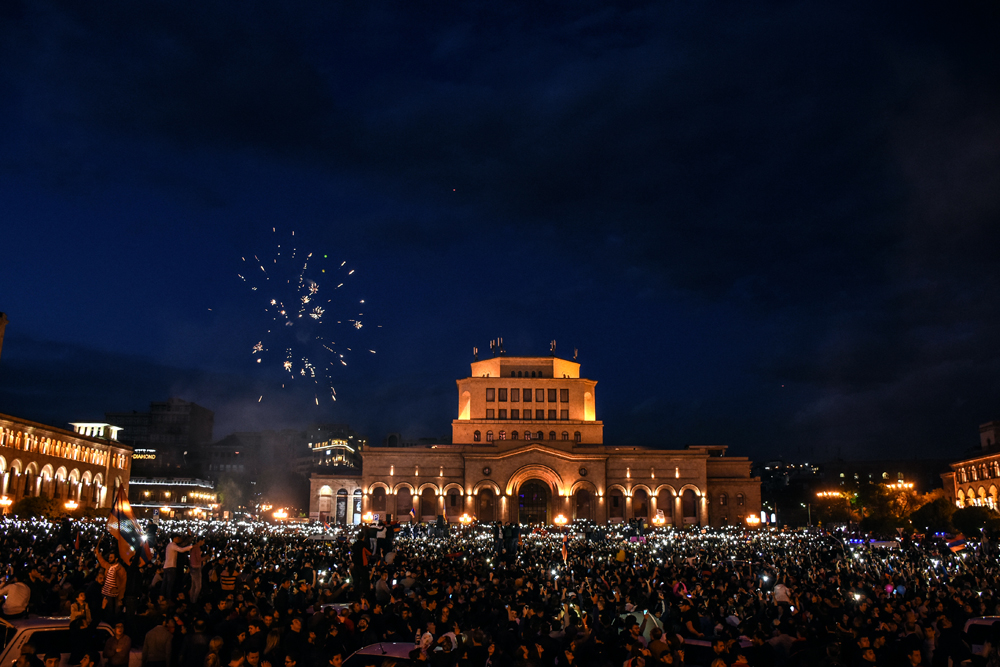
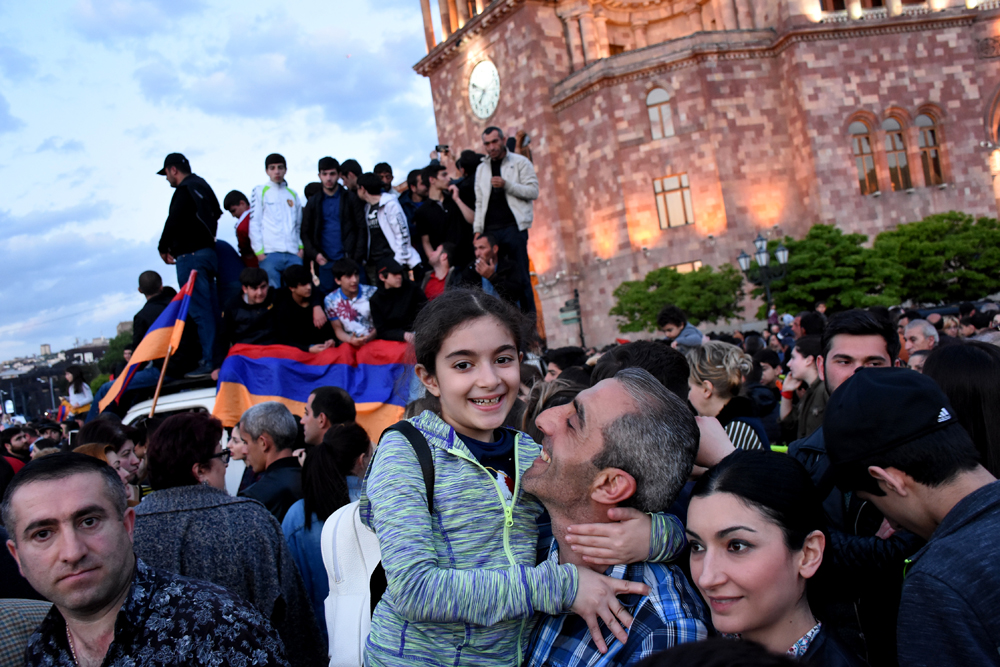
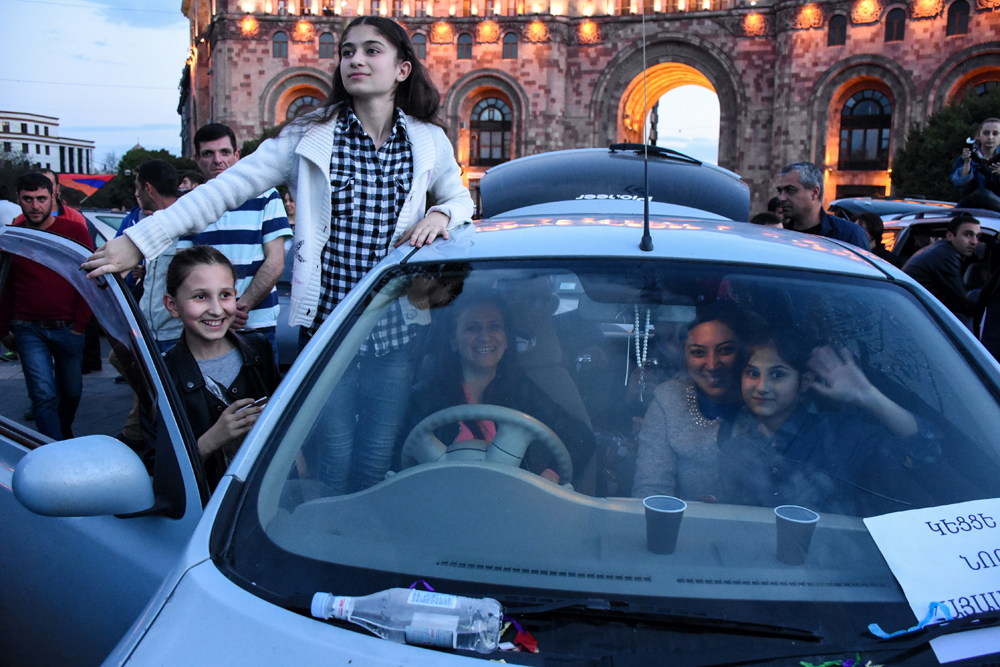
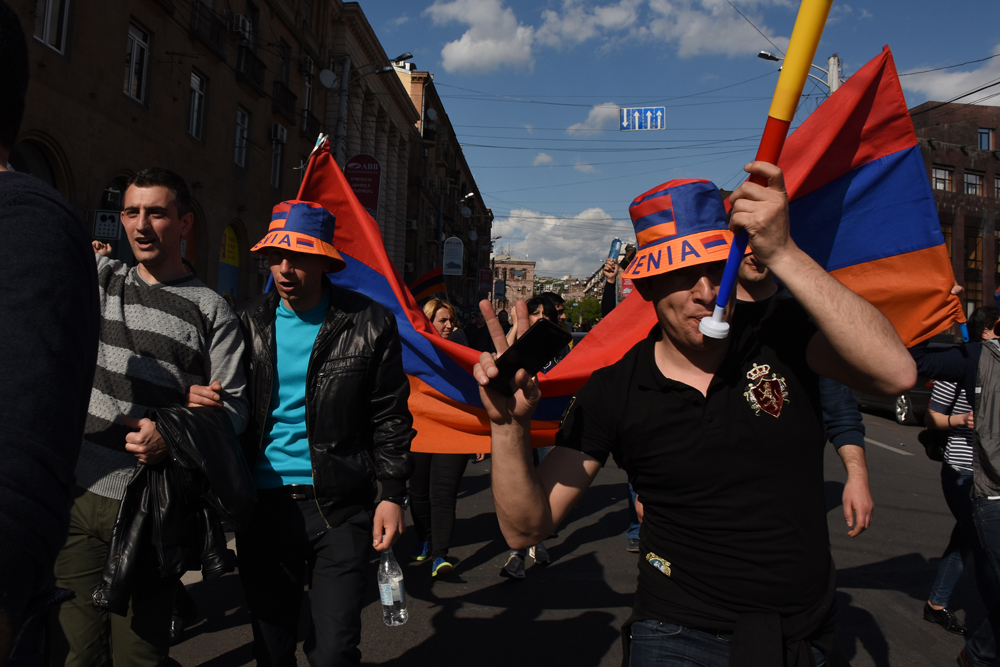

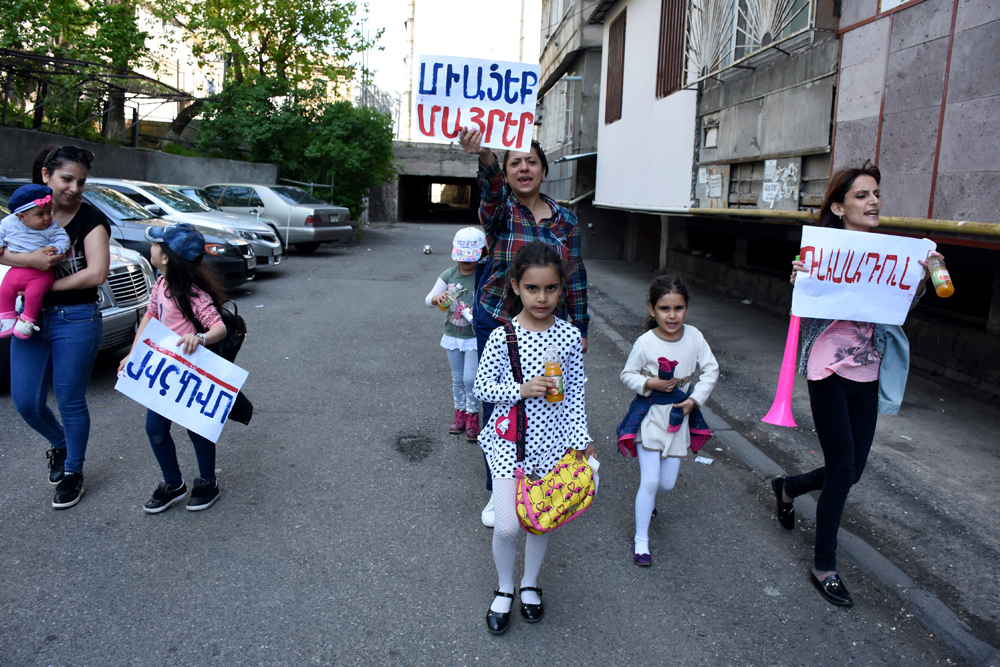
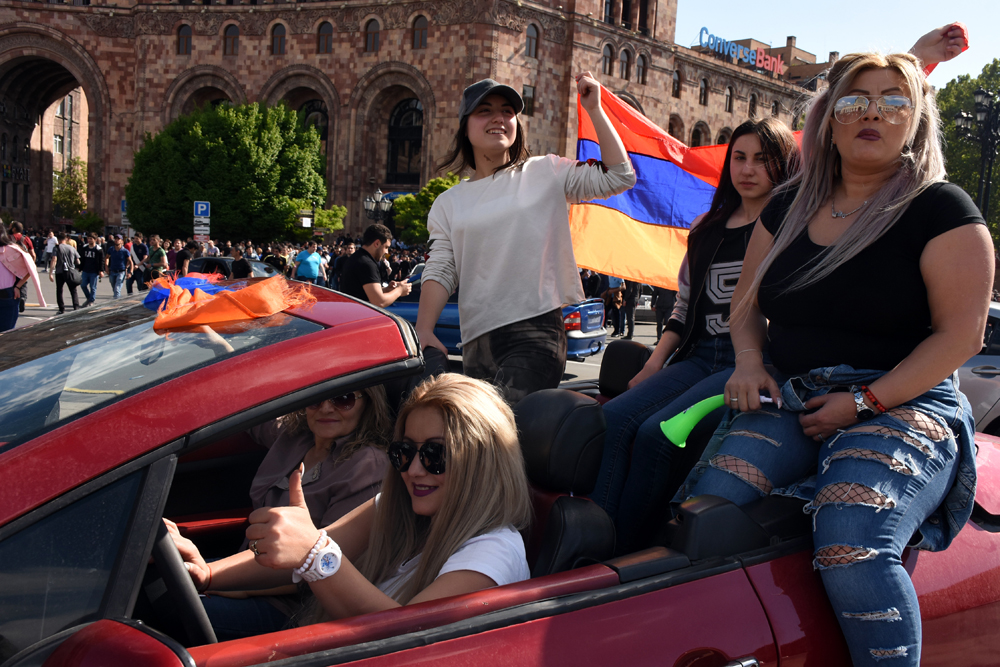
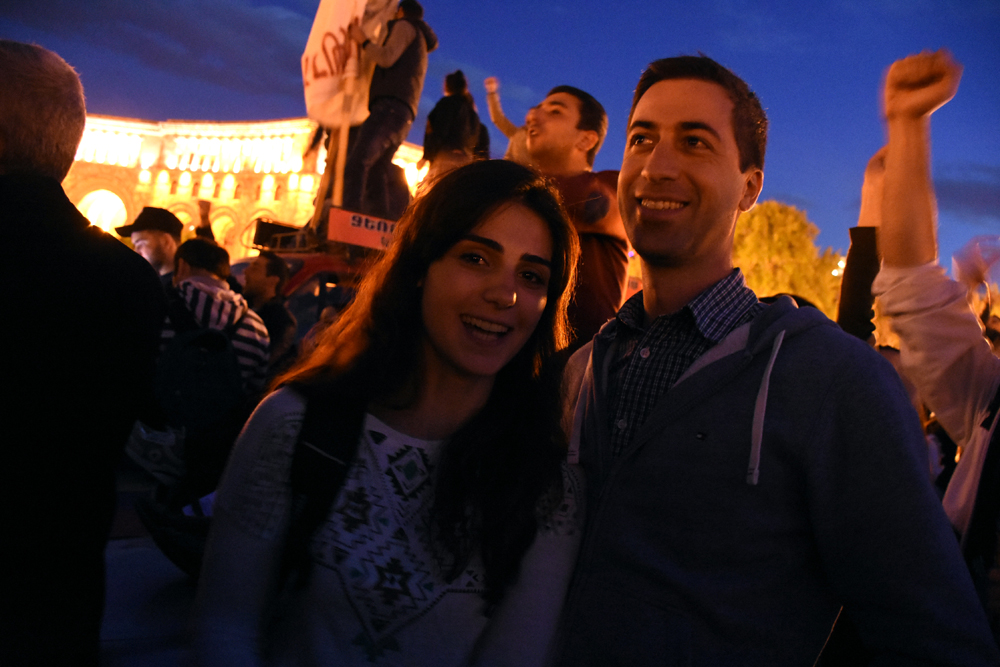
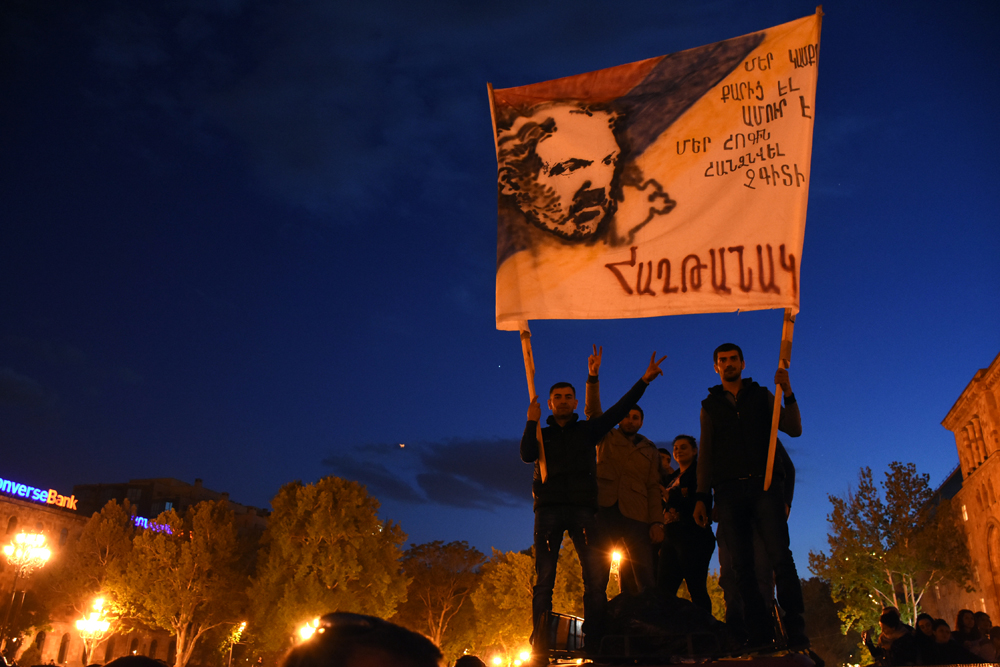
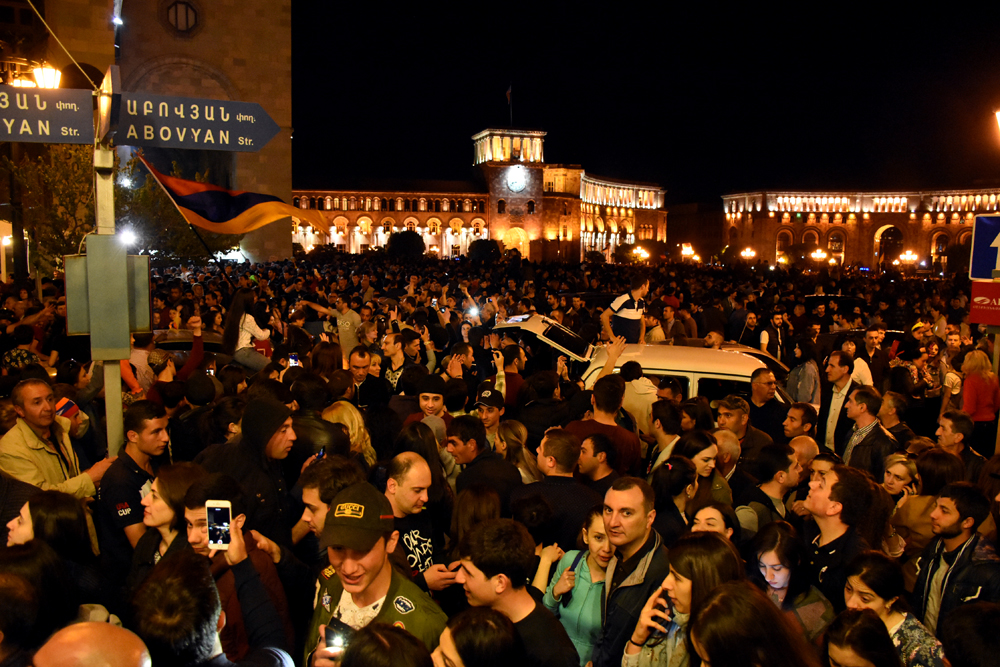
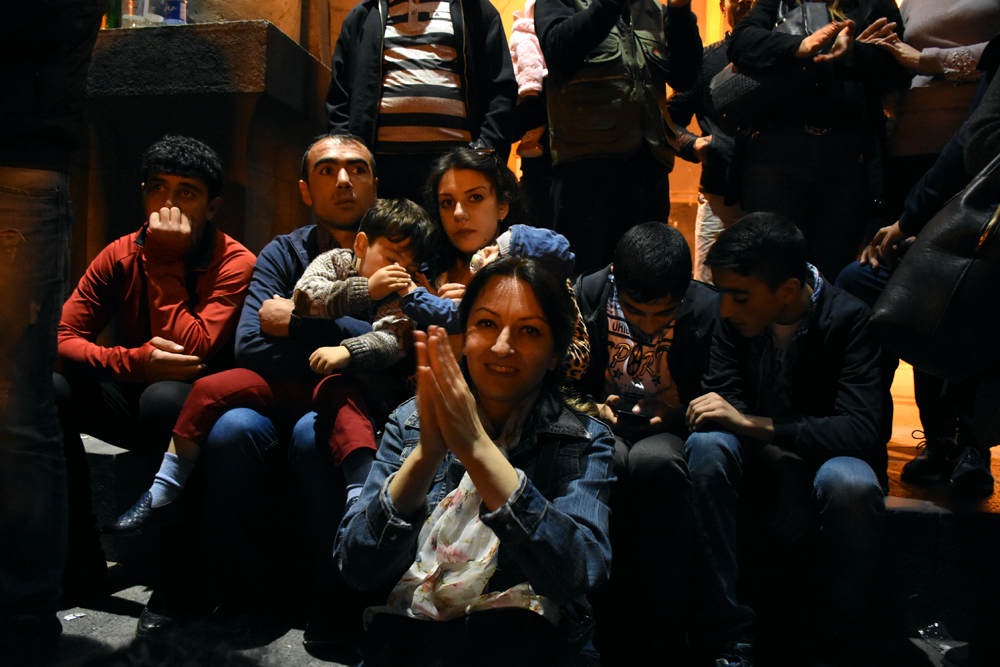
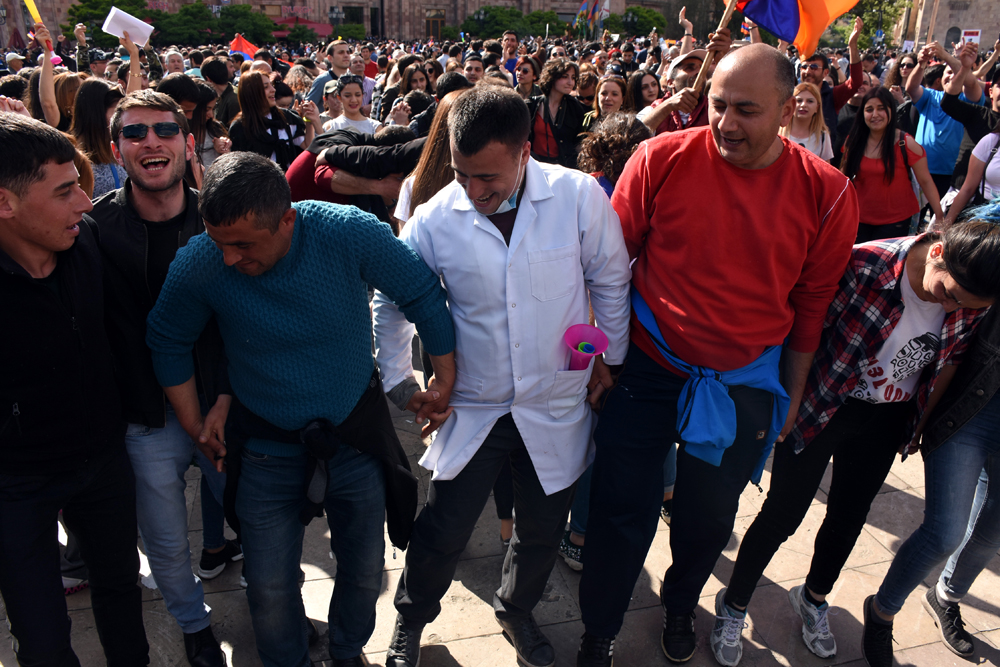
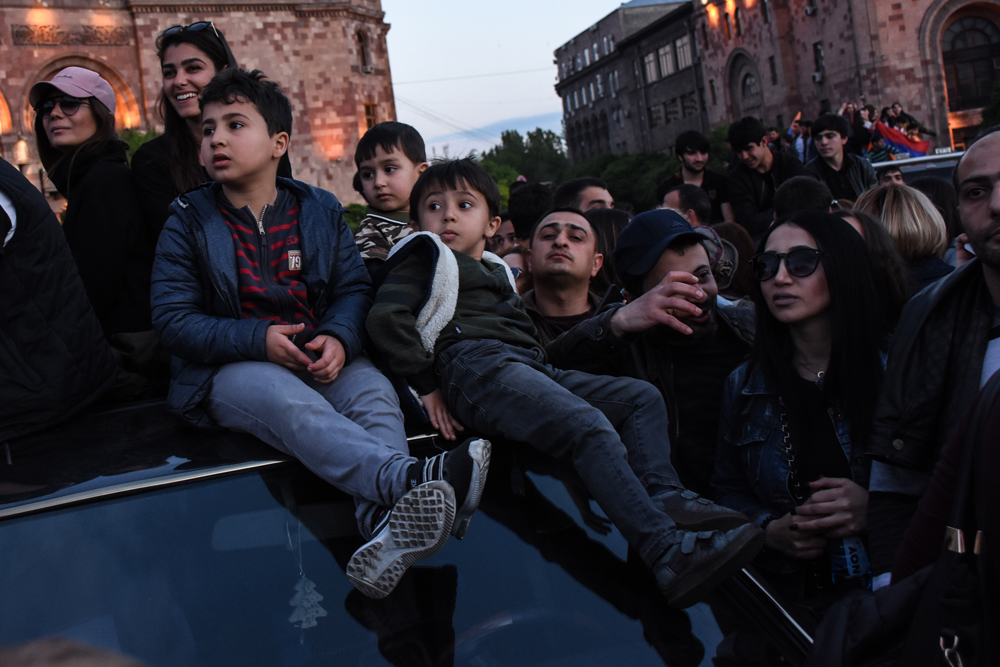
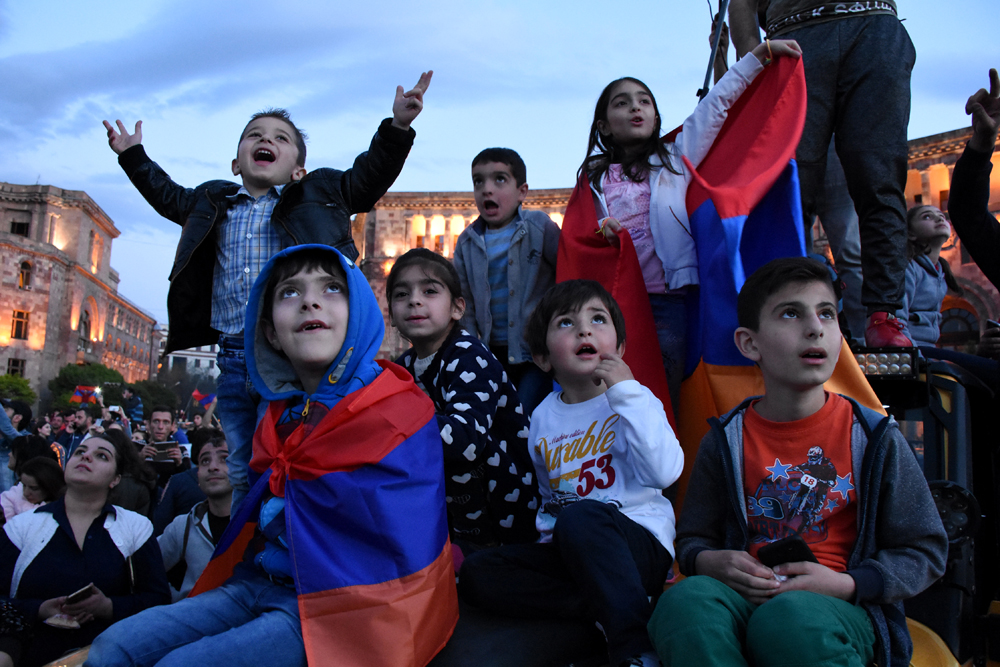
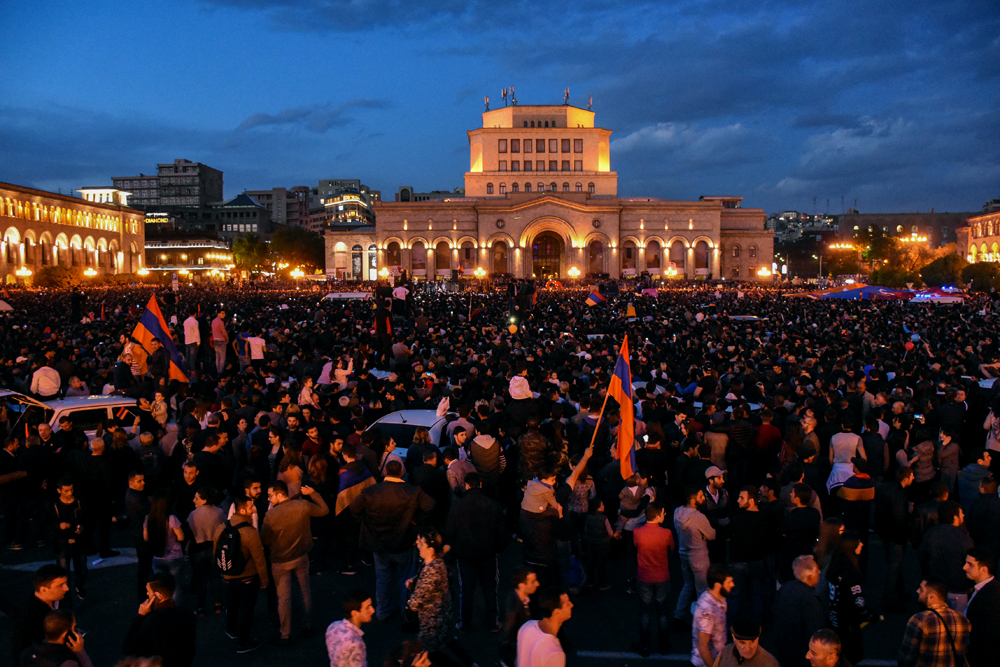
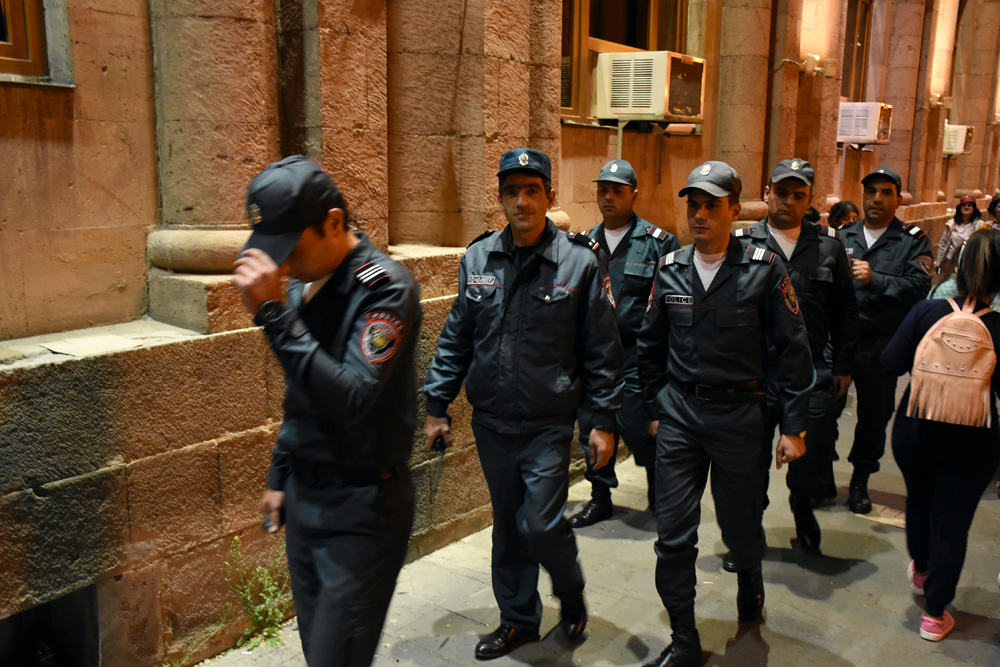
ATTENTION READERS
We See The World From All Sides and Want YOU To Be Fully InformedIn fact, intentional disinformation is a disgraceful scourge in media today. So to assuage any possible errant incorrect information posted herein, we strongly encourage you to seek corroboration from other non-VT sources before forming an educated opinion.
About VT - Policies & Disclosures - Comment Policy




This ” soft coup” is Russian fault. There are the most numerous US “diplomats”. 2 nd place in the world. The opposite ” leader” Pashinyan is straight russophob. If he comes to power – Armenia will be sort of Ukraine, but with Armenian “accent”…
Comments are closed.